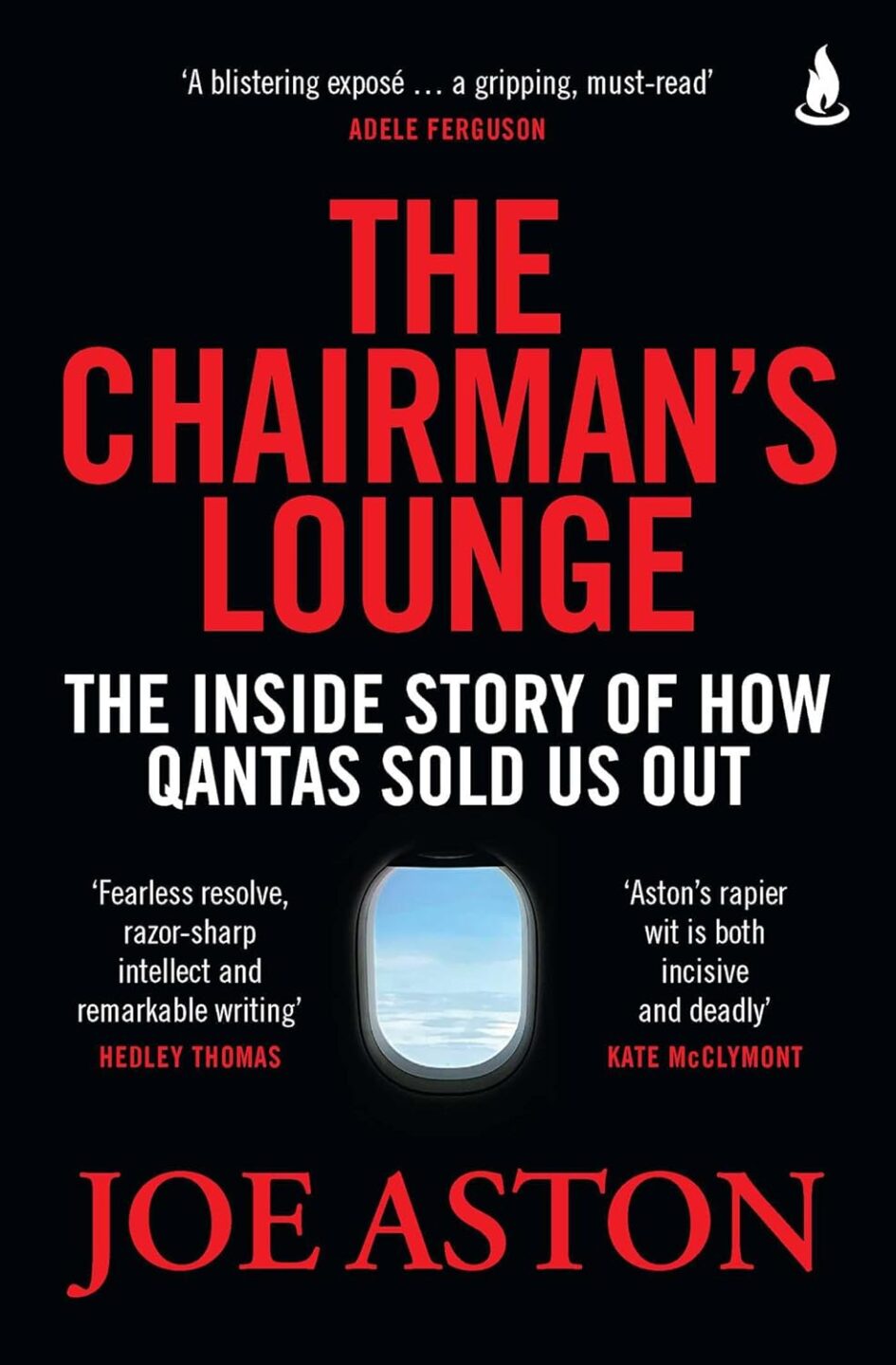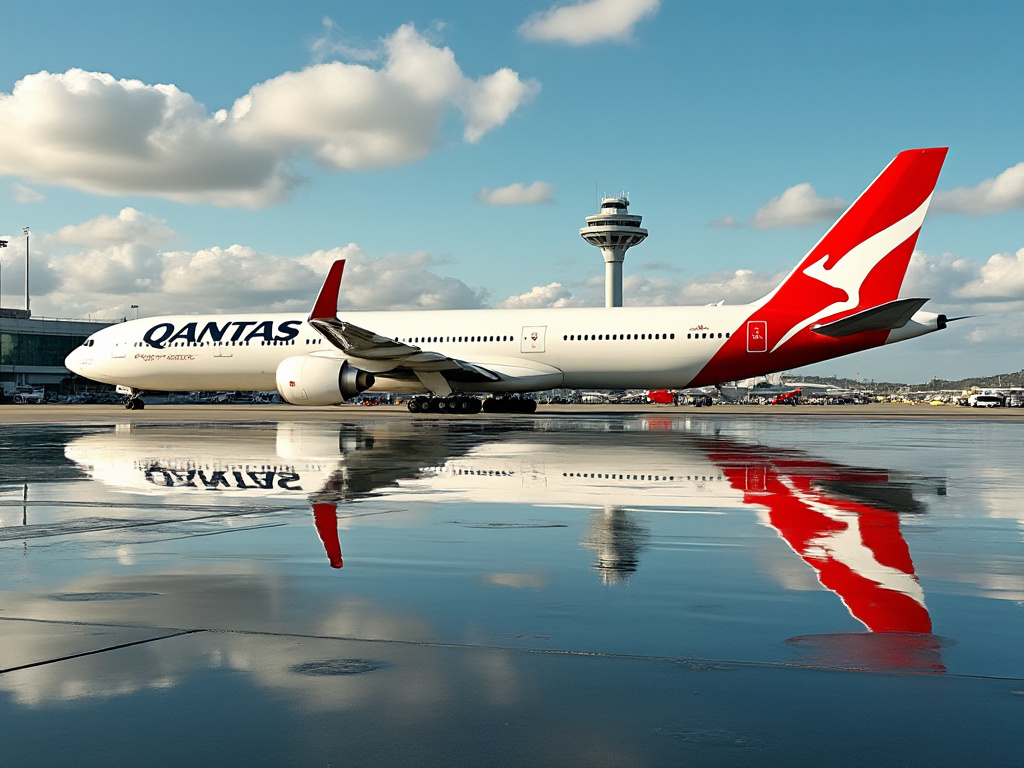The release of “The Chairman’s Lounge” by Joe Aston has thrust Australian Prime Minister Anthony Albanese into a whirlpool of controversy, questioning his integrity and closeness with corporate entities, particularly Qantas Airways. This essay delves into the ramifications of this book on Albanese’s political career, public perception, and the broader implications for political ethics in Australia.
Background of the Controversy
Joe Aston, known for his incisive commentary while at The Australian Financial Review, released “The Chairman’s Lounge” in late 2024. The book, which promised an insider’s look into corporate Australia, unexpectedly focused significant attention on Albanese’s relationship with Qantas, especially during Alan Joyce’s tenure as CEO. Aston’s revelations suggested that Albanese had frequently liaised with Joyce for personal travel upgrades, painting a picture of undue influence and favoritism.
The Nature of the Allegations
The core of the controversy lies in the allegations that Albanese, during his political career, especially when he held significant portfolios related to transport, had not only received but also actively sought upgrades on Qantas flights. These actions, as portrayed in Aston’s book, suggested a cozy relationship that could potentially blur the lines between corporate interests and public policy decisions. The implication was not just of personal gain but a broader question of how such relationships might influence government decisions concerning airline regulations, subsidies, or competitive environments.
- Anthony Albanese’s Qantas Perks Scandal Blows Up – Highlighting how Albanese allegedly requested upgrades for private flights, especially when he was the transport minister.
- Albanese ‘Compromised’ Over Qantas with Claims of Direct Line to Ex-Boss – Suggesting there was a direct line of communication with Alan Joyce for personal favors.
- Prime Minister Albanese Caught Out Over Billionaire Flight Claim Amid Qantas Freebie Drama – Pointing to inconsistencies or falsehoods in Albanese’s statements regarding his travel arrangements.
- Federal ICAC: Albanese Referred Over Qantas Corruption – Although a dramatic claim, this reflects the public’s call for accountability concerning his dealings with Qantas.
- Albanese’s Qantas Upgrade Scandal “Just Starting” and Will Get Worse – Indicating ongoing revelations and public scrutiny expected to intensify.
- Albanese’s Pants on Fire Over Qantas Scandal – A metaphorical headline suggesting Albanese was caught lying about his involvement with Qantas perks.
These headlines capture the media discourse around Anthony Albanese’s alleged improprieties with Qantas, focusing on the perceived corruption, influence peddling, and the ethical implications of his actions.
Political Repercussions
The immediate political fallout was fierce. Opposition leader Peter Dutton seized the opportunity to question Albanese’s integrity, calling for a deeper investigation into these dealings. This controversy came at a time when public trust in politicians was already strained, making it fertile ground for such allegations to gain traction. Albanese’s defense, where he declared having followed all disclosure laws, was met with skepticism by some, highlighting a broader issue of perception versus legality.
Public Reaction and Media Coverage
Public reaction was mixed but undeniably engaged. Social media platforms buzzed with discussions, with some defending Albanese, citing that his actions were within the law, while others were outraged, seeing it as yet another example of politicians being out of touch with the common citizen. Media coverage was extensive, with major outlets like The Australian Financial Review, Sky News Australia, and Reuters covering the story from various angles, often fueling the debate rather than dousing it.
Implications for Political Ethics
This episode raises critical questions about political ethics in Australia. While Albanese’s actions might not breach legal standards, they certainly fall into a gray area of ethical conduct. The controversy underscores the need for clearer guidelines on what constitutes acceptable interactions between politicians and corporate entities. It also brings to light the public’s expectation for politicians to not just meet legal standards but to embody a higher moral standard.
Albanese’s Defense and the Role of Transparency
Albanese’s approach to defending himself has been to emphasize transparency in his dealings. He pointed out that all upgrades were declared, arguing that his transparency should mitigate any accusations of impropriety. However, this defense hinges on the notion that disclosure alone suffices in the eyes of the electorate, which, as this case shows, might not always be true. The public’s demand for not just transparency but for politicians to be seen as above board in their dealings, even if legally permissible, has never been clearer.
The Broader Impact on Australian Politics
The “Chairman’s Lounge” controversy might serve as a catalyst for future political reforms. It highlights the need for more stringent regulations on gifts, corporate hospitality, and interactions between politicians and businesses. This could lead to a more rigorous declaration system, possibly extending beyond monetary values to include the nature of the benefits received. Moreover, it might encourage a cultural shift where politicians are more cautious about how their actions, even if legal, are perceived by the public. It might also further accelerate Albanese’s declining personal popularity, finally destroying his credibility altogether.
Conclusion
The political storm following “The Chairman’s Lounge” has not only challenged Albanese’s political standing but also catalysed a national conversation on political conduct. While Albanese might survive this particular controversy, it underscores a lesson for all politicians on the importance of not just legal compliance but ethical perception. As Australia moves forward, this episode could be a turning point towards more transparent, ethical governance, where the public’s trust is not just maintained but earned anew through exemplary conduct.






